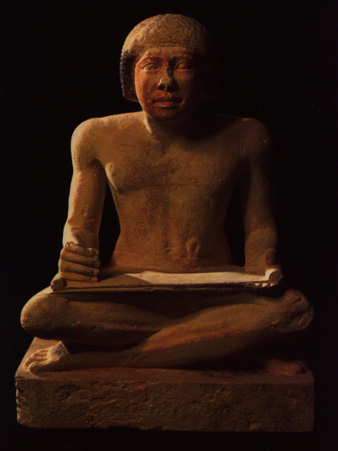Science, intelligence and liberal education.
Science is an endeavor –of the mind, heart and hands– that seeks to derive from often confusing experiences some order and underlying commonality to the inhabited world. Stephen Hawking as an example of one contemporary scientist's beliefs about our existence reveals precisely how far human understanding has moved form the once-self absorbed and childlike notions that have kept entire civilizations from comprehending with some greater accuracy the splendor of our earth suspended as it is; an oasis in the vacuum and void of these heavens.
"A more reasonable explanation is that there is a very low probability either of life developing on other planets or of life developing intelligence. Because we claim to be intelligent, though perhaps without much ground, we tend to see intelligence as an inevitable consequence of evolution. However, one can question that. It is not clear that intelligence has much survival value. Bacteria do very well without intelligence and will survive us. . . ."
Hawking, Universe in a Nutshell, p. 171.
 More than opinions, or
interpretations, the facts of material existence have transformed our understanding of the earth, our analysis of the cosmos, our evaluation of life and a deeper comprehension of our own capacity to improve or degrade the societies in which we coexist.
More than opinions, or
interpretations, the facts of material existence have transformed our understanding of the earth, our analysis of the cosmos, our evaluation of life and a deeper comprehension of our own capacity to improve or degrade the societies in which we coexist.
 Of all the forms of knowledge that that human cultures have discovered and nourished since the ancient Egyptians, Babylonians, Greeks and Chinese until today, rational and mathematical
science has upset conventional wisdom and comfortable beliefs. These include biases that we have about other
people, our planet in a solar system of the galaxy and even the expanding universe. One price of technology, like scientific
discoveries that spill out from any newfound technical capacities, is discomfort. We may not merely observe and do nothing, because we are enmeshed in a universe where disturbance is intrinsic to observing anything and by not doing we extenuate a tenuous situation in which waste accumulates and disorder ensues.
Of all the forms of knowledge that that human cultures have discovered and nourished since the ancient Egyptians, Babylonians, Greeks and Chinese until today, rational and mathematical
science has upset conventional wisdom and comfortable beliefs. These include biases that we have about other
people, our planet in a solar system of the galaxy and even the expanding universe. One price of technology, like scientific
discoveries that spill out from any newfound technical capacities, is discomfort. We may not merely observe and do nothing, because we are enmeshed in a universe where disturbance is intrinsic to observing anything and by not doing we extenuate a tenuous situation in which waste accumulates and disorder ensues.
Added to the anxiety and
uncertainty of being a limited human in a frighteningly indifferent  world,
scientific findings have tempted and redefined us. Since the time of the Renaissance,
discoveries of mathematicians, physicists, chemists, biologists and geologists
have continually shifted human beings from the center of their childish day
dream world of cushioned entitlements in a land of special creation.
world,
scientific findings have tempted and redefined us. Since the time of the Renaissance,
discoveries of mathematicians, physicists, chemists, biologists and geologists
have continually shifted human beings from the center of their childish day
dream world of cushioned entitlements in a land of special creation.
Instead, rudely events have pushed us unceremoniously into an adult world. With this unexpected shove may also emerge a healthier realization of our dual capacities for learning enough to improve the world, or persist in ignorantly taking the mysterious cosmos for granted.
Humans have an inherent capacity, once stimulated, to either embrace the wonder of reality or continue on as a detrimental interference in existence. As a free person of conscience, you may believe any credo, but you deny material laws and uncertainty at your peril. Water flows downhill, bacteria become resistant to antibiotics, the earth rotates on its axis every 23 hours and 56 minutes, while it revolves about the sun every 365 and one quarter days.
We persist in our endeavors to outwit the follies of our own making only so far as we are willing to confront our idols, examine our trained incapacities, and bear witness to the under appreciated biases in our beliefs. We do so in order to always give voice to a sense that we need one another in this cosmos far more than the cosmos needs us. The universe cares not a wit that we so depend upon its entropic entanglements.
JVS.
April 27, 2006, ed. May 17, 2013
500 words
Return to Feynman | Go to Gell-Mann | go to Einstein | Hardin | Hawking | Karen Horney: personal growth | Mayr | Tattersall | unseen genome | uncertainty
MLS-605 | Writing from texts
Lewis Thomas

|
||